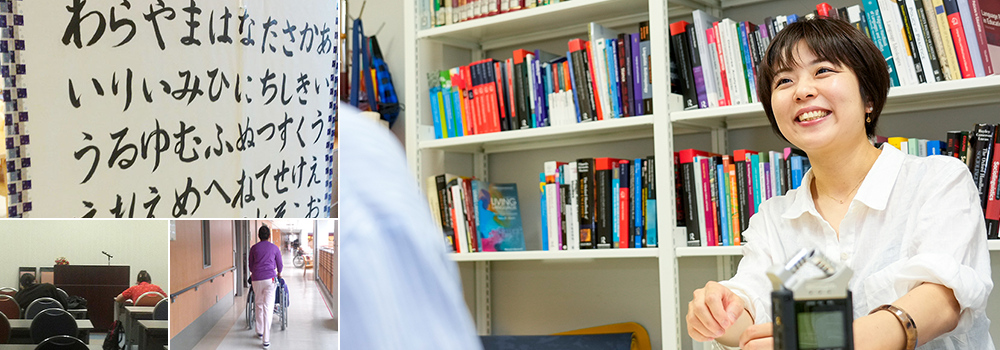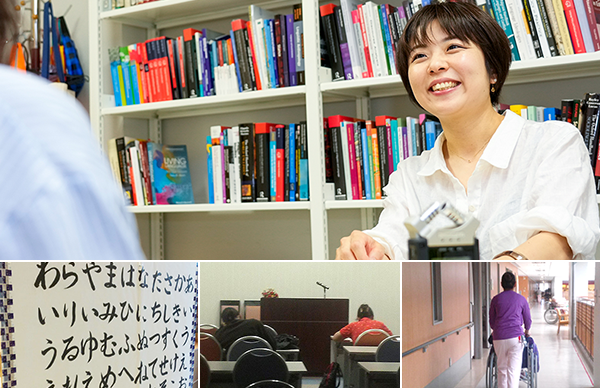

歴史的、政治的、社会的な観点から言語実践を考える
ここ数年は、一見、言語(教育)政策とは異なる様相を見せている社会政策が、実際は「言語(教育)政策」として機能している現象に着目しています。また、一般的に“言語政策”と聞いて想起される、国が主体となって策定する政策だけでなく、学校や会社などの組織レベルで策定される“政策めいた”言語規範・ルールも調査の対象としています。
社会言語学・応用言語学・言語人類学は、幅広いフィールドなので、上記の研究興味は、必ずしも、指導学生・共同研究のテーマと重なっているわけではありません。
共同研究については、Profileの「研究プロジェクト」をご覧ください。
過去・現在進行中の指導学生の研究テーマについては、Profileの「学生指導」をご覧ください。

大学院ゼミ志望の方へ:大学院(修士・博士)での指導を希望する方は、一度、メールにてご連絡ください。
研究生として出願される方:大学院(修士)での指導を希望する方は、内諾は不要です。
Profile
- 略歴
- 著書、論文等
- 講演・口頭発表
- 研究プロジェクト
- 競争的資金等
- 社会・学会活動、受賞歴等
- 担当授業
- 学生指導
Research
決まった「言語」や「フィールド」は定めてはいませんが、主に日本を取り巻く言語実践(言語体系、言語使用、言説、言語意識、言語教育実践・制度含む)と社会の関わりを紐解くため、また、言語政策・計画に深く関わっている言語イデオロギーを探るために、研究を行っています。
研究デザインとしては、社会言語学、言語人類学、応用言語学の知見を採用し、エスノグラフィー、フィールドワーク、インタビュー、批判的談話分析を援用しています。

池間島(沖縄)でのフィールドワーク
Access
〒060-0817
北海道札幌市北区北17条西8丁目
北海道大学 大学院国際広報メディア・観光学院/メディアコミュニケーション研究院
国際広報メディア・観光学院への行き方
https://www.imc.hokudai.ac.jp/admissions/news_admissions/access/accessfromN18.pdf
Contact
電話番号:011-706-5375
E-mail:rotomo(at)imc.hokudai.ac.jp
(at)を@に変更してください。


